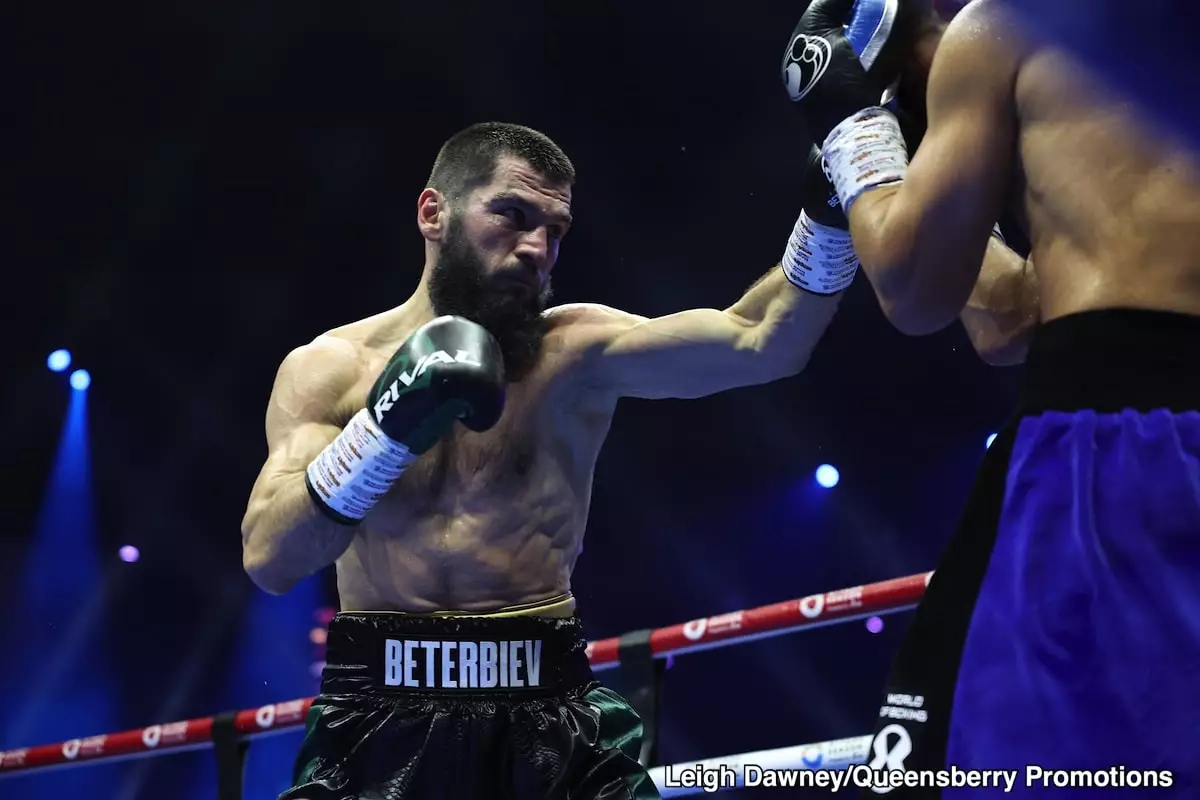The world of boxing is riddled with complexities and often leaves promoters grappling with regulatory bodies and the sport’s demanding logistics. Recently, acclaimed promoter Bob Arum expressed his anger over the International Boxing Federation’s (IBF) decision to mandate Artur Beterbiev’s defense of his IBF light heavyweight title against little-known German contender Michael Eifert. Arum’s frustration highlights a fundamental issue in boxing: the sometimes ludicrous nature of mandatory defenses that can overshadow the excitement and momentum generated by high-stakes matches.
Beterbiev, fresh off a high-profile victory against Dmitry Bivol, is faced with the prospect of defending his title against an opponent who lacks a significant track record or the drawing power to make a compelling bout. For a fighter with Beterbiev’s credentials—an undefeated record of 21 wins, including 20 knockouts—this mandatory defense appears to diminish the value of his championship status, reducing it to a mere bureaucratic obligation rather than a stepping stone toward more significant and lucrative matchups.
Business vs. Sport: The Dilemma
The landscape of boxing is shaped not only by skill but also by the business machinations that dictate fighter trajectories. Arum noted the contradiction inherent in having a champion like Beterbiev labor under what he termed a “burden” to defend his title against a “non-entity” just days after a momentous win. He stated, “It’s totally insane. It’s like a burden to be undisputed.” This sentiment reflects a growing sentiment among fans and promoters alike, who question the necessity of such defenses, particularly when the focus should be on unification bouts or attracting larger audiences.
Investors and stakeholders in the sport are more interested in high-caliber matches—such as Beterbiev’s potential showdowns against renowned opponents like Canelo Alvarez or David Benavidez. These matchups promise greater financial returns and fan engagement, elevating the status of the sport. The contrast between the potential of defending against Eifert and the excitement surrounding a bout with Canelo, for instance, underscores the failure of boxing’s regulatory bodies to adapt to the modern landscape where entertainment and marketing are critical for survival.
Looking to the Future: Pathways and Possibilities
There is a palpable excitement surrounding the possibility of a rematch between Beterbiev and Bivol to resolve the controversies stemming from their recent fight. However, the allure of facing established stars like Canelo or Benavidez could well overshadow the rematch, should those bouts be positioned as potential options for Beterbiev’s next fight.
While stakeholders like His Excellency Turki Alalshikh may push for a rematch to pacify the fanbase, one can’t ignore the business realities at play. The ongoing dialogue surrounding these matchups emphasizes a broader narrative in boxing, where the focus shifts towards maximizing visibility and profitability, often at the expense of strictly adhering to traditional boxing regulations.
As the dust settles from Beterbiev’s latest victory, the question remains: will he comply with the IBF’s mandate, or will he leverage his status to pursue a more lucrative option? Boxing continues to be a sport where maneuvering through convoluted regulations can shape—even dictate—the careers of its champions. For fans, the hope for thrilling matchups persists, but the underbelly of boxing bureaucracy can often cloud that excitement, leaving many to wonder about the genuine value of championship titles in such a complex landscape.


Leave a Reply